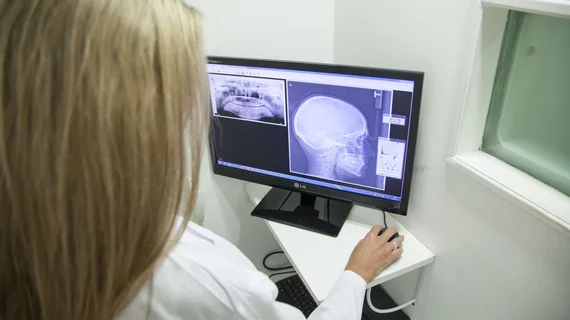Evidence-based guidelines fail to curb inappropriate imaging orders in Ireland
Four years ago the U.K.’s Royal College of Radiologists released its evidence-based “iRefer” guidelines to help referring physicians in Ireland order the right imaging at the right time for the right indication. Now researchers on the Emerald Isle have compared the appropriateness of exams ordered before and after the release, with an eye on economic costs as well as radiation doses.
The results are less than inspiring, the authors reported March 14 in the Irish Journal of Medical Science.
James Ryan, MBBS, of Mater Misericordiae University Hospital in Dublin and colleagues reviewed 1,124 x-rays ordered in ER, inpatient and general-practitioner settings at their institution before and after the guideline introduction.
Calculating cost and cumulative dose estimates for inappropriate referrals, they factored in salaries, time taken acquiring and interpreting images and median effective dose values.
Their key finding: The proportion of inappropriate x-rays ordered actually ticked up a notch, from 42 percent pre-introduction to 43 percent post-introduction.
Further, the team identified 784 inappropriate referrals across six radiograph subtypes. Collectively these inappropriate x-rays dosed patients with a total median effective radiation dose of 65.1 mSv.
And they found the time spent performing inappropriate abdominal and spinal x-rays in 2017 yielded an estimated compensation cost of 8,036 euros (about $9,100).
“A significant amount of inappropriate radiographs continue to be requested and performed, exposing patients to needless ionizing radiation and wasting staff members’ time at a financial cost,” the authors wrote. “Interventions are needed to decrease inappropriate referrals.”

